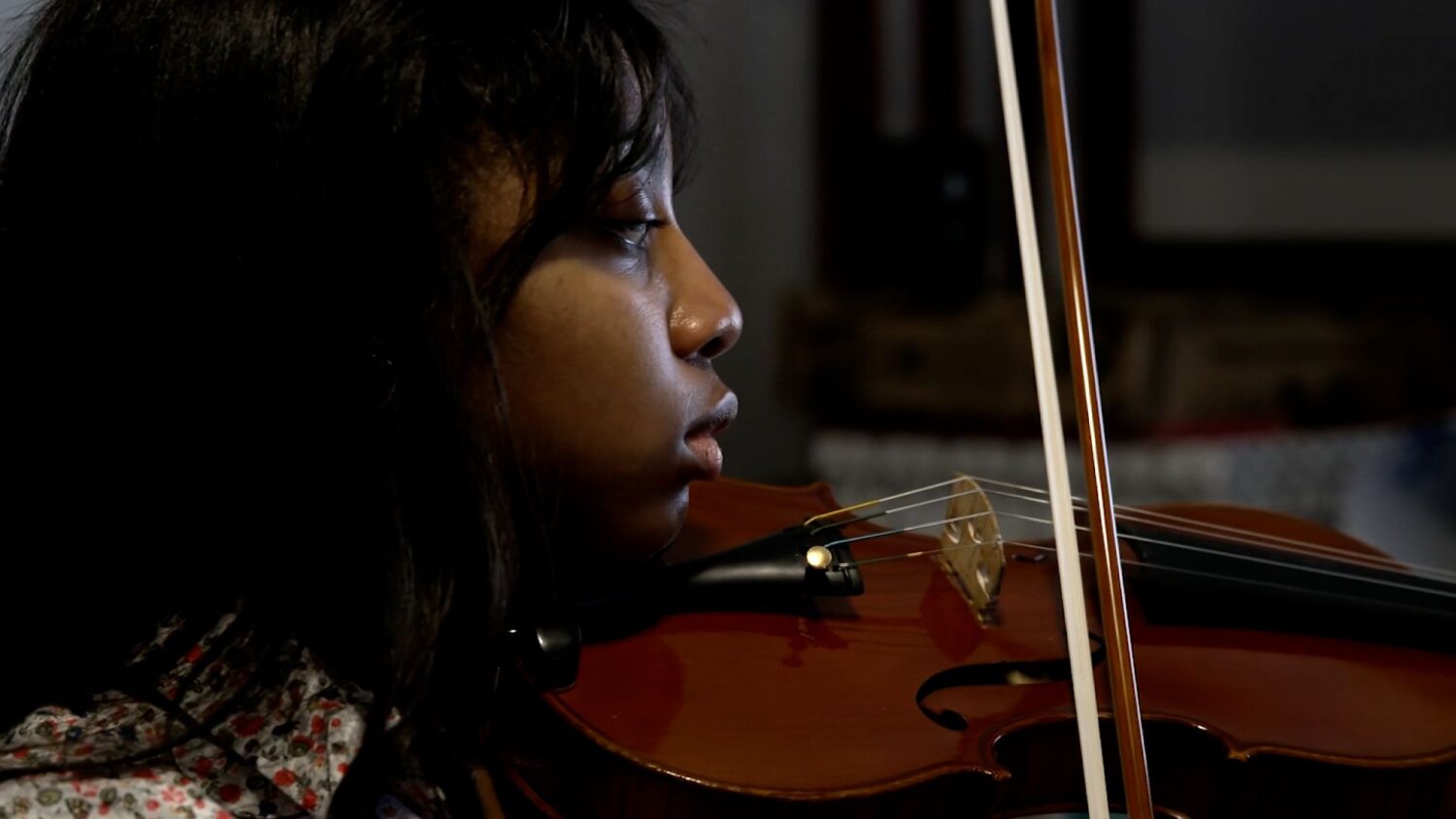
(CNN) — Azira G. Hill hasn’t forgotten the days she used to volunteer as an usher for the Atlanta Symphony Orchestra in order to save money on tickets for performances. A passion that was fueled during her childhood in Cuba.
“I grew up with music all the time in my home, my mother’s room,” Hill told CNN.
Hill moved to Atlanta from Cuba to pursue a degree in nursing and went on to work at Grady Memorial Hospital. While there, she met and married her husband, civil rights activist Jesse Hill. But from a young age she said she also felt it was important to make a positive impact in her community.
“I was taught you are responsible for something, you’re not here for decoration. You are expected to use your talents and your energy to improve things, if necessary,” said Hill.
A lifelong music lover, Hill, served as co-chair of the Atlanta Symphony Associates’ Action Committee for Audience Development in the Black community. This propelled her to launch a program that went on to serve as a model across the country, the Atlanta Symphony Orchestra’s Talent Development Program (TDP).
Over the last 30 years, the Talent Development Program has mentored more than 100 young Black, African American and Latino musicians. Some of them go on to continue their education at top music schools across the country such as The Julliard School, the Curtis Institute of Music and the Peabody Institution.
Each year the Atlanta Symphony Orchestra serves up to 25 students. The students are paired with current ASO musicians who provide weekly private lessons. The program also helps students with financial assistance, and performance and audition opportunities. Robert Anemone, an Atlanta Symphony Orchestra violinist and TDP mentor, said these issues are often referred to as “pipeline” issues.
“There are barriers way before these auditions for the highest level of professional things that even if we make that equitable, we’ve already filtered out a lot of people who could have been really promising,” Anemone said. “For me, the only way that we can really tackle it well is to look at all these different levels and try to hit each one to the degree that we can.”
A 2023 League of American Orchestras survey of its members found that, among members of the 156 orchestras that responded, roughly 1 in 5 were identified as people of color, compared with about 1 in 7 a decade ago. The survey found relatively little change over that time in the share of musicians who were identified as Black or African American.
Anemone said visible changes in diversity at the orchestra level can take years based on open positions and lack of musician turnover.
“But I see the effects of it already. I mean, this season I am sharing the stage of Atlanta Symphony Hall with two graduates of the Talent Development Program,” said Anemone.
Joshua Williams is a tuba player and TDP graduate who went on to study at The Julliard School. He’s since returned to Atlanta to be an inaugural fellow with the ASO.
“From the time I started playing music, I never really thought about doing anything else,” said Williams said.
For younger Black and Latino musicians, Williams is an example that it is possible to break into an industry not recognized for its diversity.
“We’ve been banging the table and screaming and trying so hard to change the demographic in classical music,” said Williams.
Williams, who entered the TDP in middle school, said the program helped him paint a picture of what his career as a professional tuba player could be. He also credits his early success to the organization. For younger musicians following his path, he said it’s important to remain dedicated, diligent and to not stop believing in your potential.
“I feel like when you take care of the music and you take care of people around you, then the music and the people around you will take care of you.”
One of the young students currently in the TDP is Waverly Alexander, who started playing the violin when she was three years old. Alexander joined the program at the age of nine and is now a sophomore in high school. Although she still may be years away from achieving her dream, Alexander said she feels it is within reach.
“I want to become a professional violinist. A lot of times people think that classical music kind of just stops after school or, when you get busy but you can truly continue this into a career,” said Alexander.
Alexander said she’d like to see more diversity in the orchestras across the United States and knows she’s an important part of how the industry could look in the future.
“I think we’re heading in the right direction, but I think we do need to do more not just in Georgia but in all of the United States, maybe even across the world,” she said.
Since the creation of the TDP in 1993, similar programs within orchestras have sprung up across the country, proving there is an appetite to be more inclusive at the highest levels of musicianship.
After co-founding the TDP 30 years ago, Hill, has seen former graduates of the program go on to have successful careers in the industry. For her, it is a testament to the vision she had to help orchestras reflect the diversity of their cities.
“When they succeed, I feel like it is my success,” said Hill.
The-CNN-Wire
™ & © 2024 Cable News Network, Inc., a Warner Bros. Discovery Company. All rights reserved.



